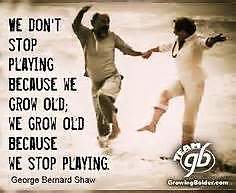Welcome to June, as we know this marks the 6th month of the year and on the 21st will be the summer solstice marking the first day of summer! Most look forward to this time of the year for there is sunshine and warm weather. Due to more sunlight our vitamin D levels will rise which helps promote optimism, muscle strength and many other cellular functions in the body. Don’t believe me? Talk to your doctor about vitamin D and use the following studies from the American Journal of Nutrition and National Center of Biotechnology Information:
A comparison of results from various studies is somewhat hampered by differences in subject demographics, study design, and outcome variables. Nevertheless, evidence indicates that muscle function in elderly people is affected by an inadequate vitamin D status (54–56). Supplementation in this population improved muscle strength, walking distance, functional ability (57–59), and body sway (70). These findings and the observed improvements in bone density after vitamin D supplementation (67, 72) provide an explanation for the association between vitamin D supplementation and fewer falls and nonvertebral fractures in elderly people (69, 71).1 In a cross-section of older adults, vitamin D deficiency was associated with low mood and with impairment on two of four measures of cognitive performance.2
Look, my goal is not to bore you with all the details and statistics and studies about why we should be healthy and do things that promote health. By now, most would recognize what it is they need to do in or order to have a better quality of life. Those that participate in the wellness program, it is obvious that they are doing better. Falls are more prevalent in residents who are predominantly less active. If for any reason you feel unstable, talk to your wellness coordinator, a therapist, or your physician. Together as a team we can develop a plan to help you stay active and independent!
References:
- Janssen, H. C., Samson, M. M., & Verhaar, H. J. (2002, April). Vitamin d deficiency, muscle function, and falls in elderly people. Retrieved from American Society of Clinical Nutrition website: http://ajcn.nutrition.org/content/75/4/611.full#ref-list-1
- Wilkins CH, Sheline YI, Roe CM, Birge SJ, & Morris JC. (2006, December 14). Vitamin d deficiency is associated with low mood and worse cognitive performance in older adults. Retrieved from NCBI website: http://www.ncbi.nlm.nih.gov/pubmed/17138809


Comments (0)